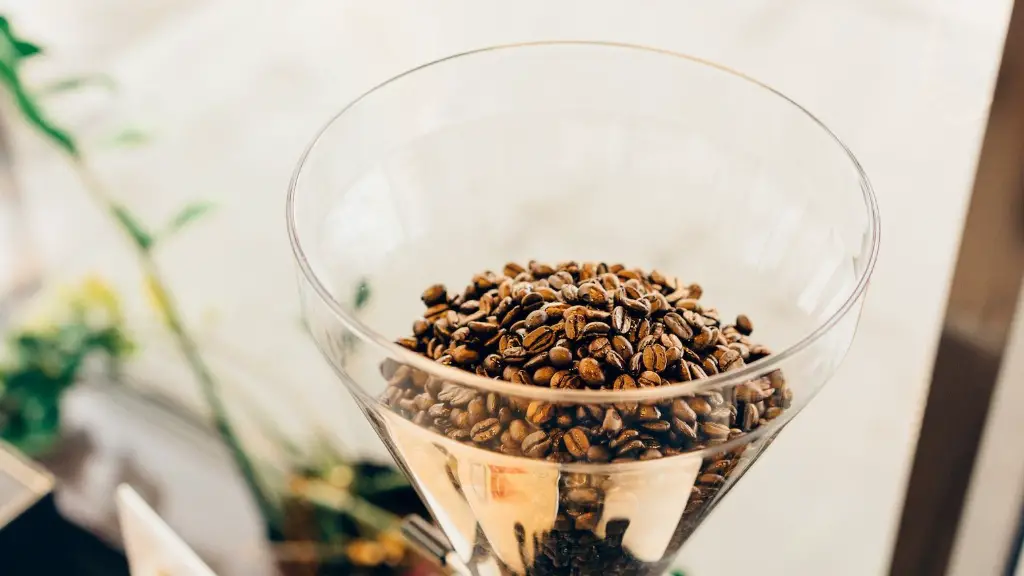Effect of Coffee on Sore Throat
If you love coffee, the thought of having to give it up while you have a sore throat can be extremely daunting. But is it beneficial to your sore throat to keep drinking coffee when it is bothering you? The answer isn’t so black and white, as there are both pros and cons to continue drinking coffee during a sore throat.
For many centuries, coffee has been used as a natural remedy to alleviate symptoms of sore throat. Its caffeine and acidic content works as an anesthetic to numb the throat and provide a numbing sensation. Coffee’s natural antioxidants are also known to reduce inflammation in the throat area and provide some relief from the pain. Scientists also say that the warm sensation produced by coffee may act as a natural way to keep the throat area moisturized, creating a slippery coating which helps reduce the friction created by painful symptoms.
That being said, coffee can also be detrimental to a sore throat. Caffeine-induced dehydration can worsen the pain and make it more difficult to swallow food or drink. The acidity of coffee can also exacerbate the soreness, leading to further irritation. And because the throat is already sensitive, adding an extra heat stimulation might cause more damage.
Experts are unanimous in saying that if you have an ongoing sore throat, the best thing you can do is to avoid coffee altogether and instead opt for nutritiously healthy liquids to re-hydrate and soothe the area. Hot water with lemon, honey, and ginger is a great alternative as well as drinking plenty of water. Drinking freshly brewed herbal tea in moderate amounts is also recommended.
No matter what you decide to do, keep in mind that the best way to get rid of a sore throat is to consult a doctor. They can provide you with the appropriate medication and advice to get rid of your sore throat in a healthy and safe way.
Effect of Caffeine on Throat Health Generally
In general, caffeine is not great for throat health. According to experts, the long-term effects of regular caffeine intake can lead to throat discomfort, including hoarseness and persistent dryness of the mouth. Further research also suggests that drinking caffeine late in the day can interrupt sleeping patterns due to the stimulation it creates—this can lead to a coarse and scratchy throat or even increased throat infections because of the lack of rest that it causes.
It is also important to note that caffeine can absorb into the bloodstream quickly and easily, which means that it can be difficult to manage the exact amount of caffeine in a person’s body as it changes from person to person and from situation to situation. In general, it is important to regulate your intake of caffeine and to be aware of its effect on your body.
As with any type of food or drink, moderation is important. Even though coffee may provide some relief from sore throat symptoms, the long-term risks of over-consuming it can be harmful. Thus, it is best to practice caution, especially if you are prone to sore throats.
If you are looking for a way to enjoy coffee without suffering its potential side-effects, there are plenty of alternatives that you can choose from. Decaf coffee is always a great option, or you can opt for herbal teas, like green or chamomile tea, which can provide some of the same calming and soothing effects as caffeine without the potential risks.
Tips to Relieve Sore Throat
Although it is best to avoid coffee when you have a sore throat, there are several other things you can do to help alleviate the symptoms. The following are some tips from experts to help reduce pain and irritation:
- Practice proper breathing techniques. This can help reduce inflammation in the throat.
- Stay hydrated by drinking plenty of water and herbal teas throughout the day.
- Avoid alcohol and smoking.
- Suck on a lozenge or a hard candy to moisten the throat.
- Gargle with salt water.
- Eat foods that are soft and easy to swallow, such as soups and mashed potatoes.
It is also important to remember that if the symptoms persist, it is best to see a doctor. They can provide an accurate diagnosis and treatment plan to help you get relief.
Home Remedies for Sore Throat
If you are looking for a more natural approach to dealing with a sore throat, there are several home remedies you can use. The following are some of the most popular remedies:
- Honey and Lemon – Honey is an antiseptic and anti-inflammatory and its natural sugar content coats the throat and relieves the pain. Lemon is an antiseptic and it soothes the throat and helps fight bacterial infections.
- Ginger – Ginger has powerful anti-inflammatory properties, which can reduce swelling and pain in the throat.
- Apple Cider Vinegar – Apple cider vinegar is a natural anti-bacterial and anti-fungal remedy and it has been known to reduce soreness in the throat.
- Peppermint – Peppermint soothes the throat, reduces inflammation, and helps with respiratory issues.
These home remedies can all be used to help alleviate the symptoms of a sore throat. However, it is still best to seek professional medical help as soon as possible if the condition persists.
Herbal Supplements for Sore Throat
Herbal supplements are another natural remedy for sore throats. Certain herbs have been known to reduce inflammation and boost the immune system, providing relief from the discomfort. Common herbs to seek out include licorice root, elderberry, slippery elm, and ginger. Some of these can be found in lozenges, teas, and tinctures.
When it comes to herbal supplements, it is best to seek out the advice of a qualified health professional or nutritionist. This is because, while herbs are considered “natural”, they can still have powerful effects, both negative and positive, on the body and can even interact with certain medications. It is important to be aware of possible side effects and to always seek professional advice before taking any herbal supplements.
In the end, the best way to alleviate symptoms of a sore throat is to practice good throat hygiene, stay hydrated, and to, of course, avoid coffee if possible. If the symptoms persist, it is advised to seek professional help as soon as possible.




